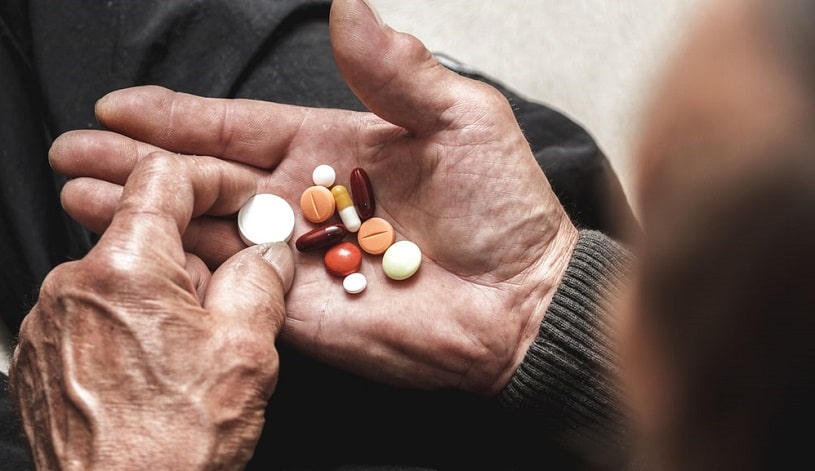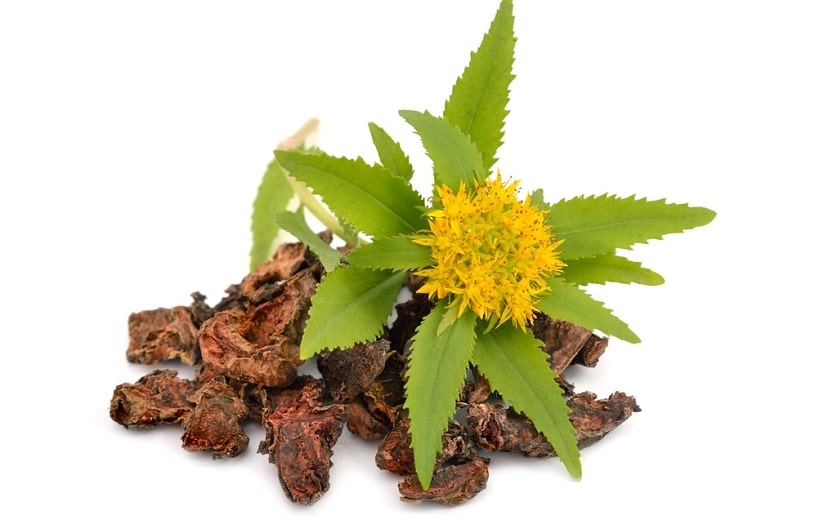There are many anti-anxiety medications that are alternatives to Xanax. These can take the form of other longer or intermediate-acting benzodiazepines. Antidepressants, herbs, supplements, vitamins, and minerals can also be used effectively to relieve anxiety.
Table Of Contents:
Besides Alprazolam, other benzodiazepines can be prescribed for the treatment of anxiety. These include chlordiazepoxide or Librium, clorazepate or Tranxene, diazepam or Valium, lorazepam or Ativan, and midazolam. It is important to know the Ativan vs. Xanax difference and natural Xanax alternatives to be aware of all the risks and benefits.
Ativan Vs. Xanax
Ativan and Alprazolam both belong to the class benzodiazepine, and they are prescribed for the treatment of sleep disorders, anxiety, and various psychiatric conditions. They are also prescribed for insomnia, alcohol withdrawal, and other conditions as an off-label drug.
Benzodiazepines generally work the same way and help control nerve stimulation, which causes a relaxing or calming effect that helps with the treatment of anxiety and other psychiatric conditions. They act as agonists to GABA and help with the influx of chloride ions into neurons resulting in a stabilization and hyperpolarization effect on the cell membrane. They bind to the GABA-A ligand-gated chloride channel neuron at its benzodiazepine receptor. Ativan and Xanax both have addictive properties, which makes them unsuitable for a long-term prescription.

Although both are fast-acting, when comparing Ativan vs. Xanax, Ativan takes longer to start its action. It takes 2 hours to start its action. Whereas Alprazolam only takes up to an hour. In a comparison of Ativan vs. Xanax, Ativan has a longer half-life. Alprazolam has a half-life of 11.2 hours with side effects including dizziness, Akathisia, drowsiness, lightheadedness, and others. On the other hand, when comparing Xanax vs. Ativan, the half-life of Alprazolam is slightly shorter than that of Ativan, i.e., 12 hours.
Its Side Effects Include:
- Depression
- Sedation
- Dizziness
- Weakness
- Unsteadiness
- Dependence
- Withdrawal
- and others
Ativan and Alprazolam both work as CNS depressants, and so any medication with the same property can amplify their effects. Alprazolam is metabolized by cytochrome P450 3A, and so any drug interacting with this compound can alter the rate of clearance of Xanax from the body. Administration of Ativan with clozapine, valproate, probenecid, theophylline, and aminophylline can alter its effects. Snorting both drugs can cause increased abuse potential and additional side effects.
Klonopin vs. Xanax
Alprazolam and Klonopin are both benzodiazepines. Like Xanax, Klonopin also acts on the GABA receptors in the CNS, but the effects of Klonopin last longer when Klonopin vs. Xanax are compared. So the Klonopin dosage frequency is reduced among Klonopin vs. Xanax. Klonopin is prescribed for panic disorders and seizures. Alprazolam, however, leaves the body quickly, and so frequent consumption of Xanax pills is needed. The half-life contracts of Klonopin vs. Xanax are quite big; the half-life of Klonopin is longer, i.e., 30 to 40 hours. Both have the potential for dependence and addiction with long-term higher doses. The withdrawal effects of Alprazolam are more severe.
Valium vs. Xanax
Valium also has a similar mechanism of action and is prescribed for the same conditions as other benzodiazepines such as Alprazolam. The half-life gap of Valium vs. Xanax is very big; Valium has a longer half-life, i.e., 48 hours, but it starts its action slightly faster. The effects of Valium vs. Xanax are dependent on different factors. Effects of Valium do not show variations with race, health conditions, diseases, or use of alcohol.

However, Valium vs. Xanax metabolism comparison shows that the metabolism of Valium is slightly slower in people of Asian and African descent, which makes the effects of the drug last longer. Valium does not cause severe withdrawal symptoms like Alprazolam, but it does cause more drowsiness as a side effect. In people with depression and anxiety, valium has been shown to be more effective for the treatment of anxiety.
Buspirone vs. Xanax
Buspirone and Alprazolam are both prescribed for anxiety. However, both drugs belong to different classes. Buspirone has not yet been placed in any specific class of drugs. It takes longer to act, i.e., several weeks compared to Alprazolam (a benzodiazepine), but among Buspirone vs. Xanax, Buspirone is more effective for long-term treatment of anxiety. The half-life of Buspirone vs. Xanax is different; that of Buspirone is 2 to 3 hours. Xanax is available in its brand form, and its generic form, alprazolam, but buspirone is only available in its generic form. Buspirone acts on the serotonin and dopamine receptors. Buspirone causes less drowsiness. In comparative studies, it has shown a significantly lower risk of dependence and addiction.
Reasons To Find Xanax Alternatives
Alprazolam is a prescription medication that is prescribed for anxiety or depression. However, although this medication is commonly prescribed, it can have a lot of side effects. It also is often highly addictive. Taking this drug with alcohol, barbiturates, or opioids can result in respiratory depression, coma, or even death due to compounded central nervous system depression.
Attempting to get off alprazolam without the help of qualified health personnel can result in withdrawal symptoms ranging from mild headaches to life-threatening seizures depending on dosage and duration of use.
This drug is also teratogenic and should not be used by pregnant or breastfeeding women. In the senile population, this drug is likely to increase Alzheimer’s and dementia incidences.
Because of the potential for experiencing negative side effects and addiction to benzodiazepines, many people seek over-the-counter alternatives to Alprazolam for anxiety and similar conditions.
Xanax Alternative Pros
- Dramatically reduced risk of alprazolam overdose
- Dramatically reduced the risk of unpleasant side effects
- Dramatically reduced risk of addiction
- Easier to obtain
Xanax Alternative Cons
- May not be strong enough to alleviate some people's anxiety
- They are often taken without consenting a doctor for advice
The Natural Xanax Alternatives
For people who do not want to take Alprazolam or other prescription antidepressants, there are some natural over-the-counter Xanax alternatives, herbs, supplements, minerals, or vitamins. The benefits of taking natural Xanax substitutes for anxiety instead of drugs such as alprazolam or antidepressants is that they are usually not habit-forming and usually pose little to no threat of dangerous side effects or overdose.
This can be extremely important for people who have addictive personalities or who have a history of substance abuse. After all, drug addiction itself often causes a lot of anxiety, so it may be counterproductive for many people to use alprazolam, Valium, or other similar drugs to treat anxiety. Here is a rundown of some of the top natural treatments that are frequently used for fear.
If you are already taking Alprazolam, do not try to quit cold turkey and substitute it with natural Xanax alternatives without consulting a doctor. Alprazolam withdrawal can be severe and requires medical assistance.
It is crucial to consult a doctor before taking any medication listed below. Treating anxiety by own can worsen the condition and lead to the appearance of unpredictable adverse effects.
Holy Basil
Holy Basil is believed to help relieve anxiety by reducing stress hormones in the body, such as cortisol. Holy Basil is also anti-inflammatory and antimicrobial. So, these things may help a person to feel better. This is especially true if the person has high levels of inflammation.
Taurine
Taurine is an amino acid that helps to create a calming effect in the brain. It is very similar to GABA, a calming neurotransmitter that makes people feel more relaxed. Taurine can be easily purchased at most natural health shops.
Magnesium
Magnesium is a mineral that is naturally found in the body. However, due to the modern American diet and mineral depletion in soils, many people do not get high enough quantities of this mineral in their bodies. Luckily, it is effortless to supplement with magnesium. In fact, magnesium supplements are usually available at nearly every pharmacy or health shop. Magnesium supplements often come in pill forms. However, there are oil versions that can be taken transdermally.
Ashwagandha
Ashwagandha can be a herbal Xanax alternative. It is frequently used in Ayurvedic medicine. The reason why this herb is said to alleviate anxiety is that it increases serotonin and decreases cortisol. Increasing serotonin levels is the fundamental underlying principle that is used with antidepressants. So, the fact that ashwagandha can do this naturally is potentially beneficial for anxiety sufferers.

Ashwagandha is considered an “adaptogen,” meaning it helps the body adapt to various problems. Anxiety is just one. Ashwagandha is also used to treat arthritis, anxiety, bipolar disorder, attention deficit hyperactivity disorder (ADHD), balance, trouble sleeping (insomnia), etc. However, the effectiveness of ashwagandha to treat these illnesses is debated. The same is its ability to step in as a natural Xanax replacement.
Inositol
Inositol is a substance that is found in high concentrations in the brain. Inositol was formerly known as vitamin b8. However, it is no longer called this way. It just goes by the name, Inositol. Inositol helps neurotransmitters to relay messages between brain cells. So, it may help to keep the chemical balances in the brain stable. Many people who have severe anxiety have chemical imbalances. So, taking inositol may help fear by creating a better balance. Inositol is also helpful with severe PMS and PMDD symptoms. Inositol can be found in pill or powder form at most health and vitamin shops.
L-Theanine
This amino acid is abundant in green tea. Most studies on the effectiveness of L-Theanine have been conducted in mice and healthy human beings. The brain’s net effect is the modulation of excitatory pathways and neurotransmitters (MAO, glutamate, and glycine). This ultimately reduces depression, anxiety and improves cognitive functioning.
Centella Asiatica
This is another herbal Xanax alternative, also referred to as Indian pennywort. Indians have used it for thousands of years to treat anxiety, wounds, leprosy, lupus, fever, diarrhea, et cetera. The exact way through which this herb produces anxiolysis is not well understood. It is postulated that brahmoside and brahminoside are active compounds that act in the brain to produce some degree of sedation or bind to the special receptors within the brain to produce anxiolysis and improved memory.
Rhodiola Rosea
Placebo-controlled randomized clinical trials have shown this herb to improve symptoms in individuals with anxiety, depression, and insomnia. However, dizziness and dryness of the mouth have been reported in those using this herb.

Thiamine
Deficiency in vitamins has been shown to be a precipitating factor for the development of psychiatric illnesses and dull response to antipsychotics. Thiamine acts as a cofactor in carbohydrate metabolism and other vital processes in the body. Supplementing vitamin B1 (thiamine) has been shown to ameliorate anxiety, nightmares, chronic fatigue, insomnia, depression, anorexia, nausea, headache, among others.
Kava
Kava is a promising Alprazolam alternative. Root extracts from this herb contain kavalactones, which act within the limbic system to modulate GABA production. The resultant effect is some degree of central nervous depression that culminates in reduced anxiety. Reduced breakdown of monoamine oxidase ensures that dopamine and serotonin linger longer in the brain. These hormones improve mood and general well being.
Taking any of these natural remedies could potentially help to reduce anxiety. The great thing about natural remedies is that they tend to be cheaper and safer. However, it’s still not recommended to experiment with these remedies without consulting a specialist as they may cause allergy or other unpredictable effects.
Use Alprazolam Alternatives Safely
Alprazolam is a powerful medication for relieving anxiety. But it also has powerful side effects and serious risks of dependence. People who do not want to deal with these side effects and risks can either use antidepressants or natural remedies to alleviate anxiety. Both are potentially suitable alternatives.
Although the choice of switching to natural over the counter Xanax alternatives ultimately lies with the patients, the doctor’s insight on the best course of action should come into play.
In some cases, alprazolam may be a better solution, and in others, a Xanax alternative may be better. It all depends on the individual situation and the different side effects of alprazolam and its substitutes.
The good thing about a strong determination to quit is that you do not have to do it alone. Plenty of detox programs are available. These are run by qualified health care personnel who have the ability to make evidence-based judgments based on individual factors. Communicating desire to try alternatives to Alprazolam to your healthcare provider will help tailor a treatment program that carries minimal risk of adverse effects.
Page Sources
- Kashmira J. Gohil,* Jagruti A. Patel, and Anuradha K. Gajjar, Pharmacological Review on Centella asiatica: A Potential Herbal Cure-all, 2010, https://www.ncbi.nlm.nih.gov/pmc/articles/PMC3116297/
- Havard health publishing,Benzodiazepines (and the alternatives), 2020, https://www.health.harvard.edu/mind-and-mood/benzodiazepines_and_the_alternatives
- Griffin CE, Kaye AM, Bueno FR, Kaye AD. Benzodiazepine pharmacology and central nervous system–mediated effects. Ochsner Journal. 2013 Jun 20;13(2):214-23. https://www.ncbi.nlm.nih.gov/pmc/articles/PMC3684331/
- Dement WC, Seidel WF, Cohen SA, Bailey R, Rountree M, Yost D. Effects of alprazolam, buspirone and diazepam on daytime sedation and performance. Drug Investigation. 1991 Jun 1;3(3):148-56. https://link.springer.com/article/10.1007/BF03259556
- Elie RO, Lamontagne YV. Alprazolam and diazepam in the treatment of generalized anxiety. Journal of clinical psychopharmacology. 1984 Jun;4(3):125-9. https://pubmed.ncbi.nlm.nih.gov/6145726/
- L. Laegreid , R. Olegård, J. Walström, N. Conradi, Teratogenic effects of benzodiazepine use during pregnancy, 1989, https://pubmed.ncbi.nlm.nih.gov/2562851/
- Karen M. Savage,corresponding author Con K. Stough, Gerard J. Byrne, Andrew Scholey, Chad Bousman, Jenifer Murphy, Patricia Macdonald, Chao Suo, Matthew Hughes, Stuart Thomas, Rolf Teschke, Chengguo Xing, and Jerome Sarris, Kava for the treatment of generalised anxiety disorder (K-GAD): study protocol for a randomised controlled trial, 2015, https://www.ncbi.nlm.nih.gov/pmc/articles/PMC4630875/
- Stacey Cornish and Lewis Mehl-Madrona, The Role of Vitamins and Minerals in Psychiatry, 2008, https://www.ncbi.nlm.nih.gov/pmc/articles/PMC3046018/
- Alexander Bystritsky 1, Lauren Kerwin, Jamie D, Feusner, A pilot study of Rhodiola rosea (Rhodax) for generalized anxiety disorder (GAD), 2008, https://pubmed.ncbi.nlm.nih.gov/18307390/
- U Jana 1, T K Sur, L N Maity, P K Debnath, D Bhattacharyya, A clinical study on the management of generalized anxiety disorder with Centella asiatica, 2010, https://pubmed.ncbi.nlm.nih.gov/20677602/
- Shinsuke Hidese, Shintaro Ogawa, Miho Ota, Ikki Ishida, Zenta Yasukawa, Makoto Ozeki, and Hiroshi Kunugi, Effects of L-Theanine Administration on Stress-Related Symptoms and Cognitive Functions in Healthy Adults: A Randomized Controlled Trial, 2019, https://www.ncbi.nlm.nih.gov/pmc/articles/PMC6836118/
- Institute for Quality and Efficiency in Health Care (IQWiG), Treatment options for generalized anxiety disorder, 2017. https://www.ncbi.nlm.nih.gov/books/NBK279594/
- Angelina F. Gomez, Abigail L. Barthel, and Stefan G. Hofmann, Comparing the Efficacy of Benzodiazepines and Serotonergic Anti-Depressants for Adults with Generalized Anxiety Disorder: A meta-analytic review, 2018. https://www.ncbi.nlm.nih.gov/pmc/articles/PMC6097846/
- Marc Maurice Cohen, Tulsi - Ocimum sanctum: A herb for all reasons, 2014. https://www.ncbi.nlm.nih.gov/pmc/articles/PMC4296439/
- Gao-Feng Wu, Shuang Ren, Ri-Yi Tang, Chang Xu, Jia-Qi Zhou, Shu-Mei Lin, Ying Feng, Qun-Hui Yang, Jian-Min Hu, and Jian-Cheng Yang, Antidepressant effect of taurine in chronic unpredictable mild stress-induced depressive rats, 2017. https://www.ncbi.nlm.nih.gov/pmc/articles/PMC5504064/
- Neil Bernard Boyle, Clare Lawton, and Louise Dye, The Effects of Magnesium Supplementation on Subjective Anxiety and Stress—A Systematic Review, 2017. https://www.ncbi.nlm.nih.gov/pmc/articles/PMC5452159/
- Centre for Reviews and Dissemination (CRD), A meta-analysis of inositol for depression and anxiety disorders, 2014. https://www.ncbi.nlm.nih.gov/books/NBK184852/


